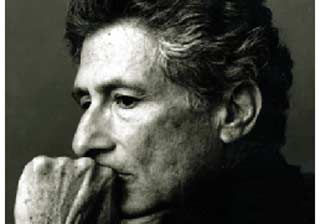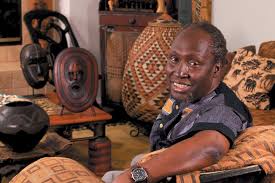Orientalism is not a mere political subject matter or field that is reflected passively by culture, scholarship, or institutions; nor is it a large and diffuse collection of texts about the Orient; nor is it representative and expressive of some nefarious “Western” imperialist plot to hold down the “Oriental” world. It is rather a distribution of geopolitical awareness into aesthetic, scholarly, economic, sociological, historical, and philological texts; it is an elaboration not only of a basic geographical distinction (the world is made up of two unequal halves, Orient and Occident) but also of a whole series of “interests” which, by such means as scholarly discovery, philological reconstruction, psychological analysis, landscape and sociological description, it not only creates but also maintains; it is, rather than expresses, a certain will or intention to understand, in some cases to control, manipulate, even to incorporate, what is a manifestly different (or alternative and novel) world; it is, above all, a discourse that is by no means in direct, corresponding relationship with political power in the raw, but rather is produced and exists in an uneven exchange with various kinds of power, shaped to a degree by the exchange with power political (as with a colonial or imperial establishment), power intellectual (as with reigning sciences like comparative linguistics or anatomy, or any of the modern policy sciences), power cultural (as with orthodoxies and canons of taste, texts, values), power moral (as with ideas about what “we” do and what “they” cannot do or understand as “we” do). Indeed, my real argument is that Orientalism is-and does not simply represent-a considerable dimension of modern political-intellectual culture, and as such has less to do with the Orient than it does with “our” world.
Because Orientalism is a cultural and a political fact, then, it does not exist in some archival vacuum; quite the contrary, I think it can be shown that what is thought, said, or even done about the Orient follows (perhaps occurs within) certain distinct and intellectually knowable lines. Here too a considerable degree of nuance and elaboration can be seen working as between the broad superstructural pressures and the details of composition, the facts of textuality. Most humanistic scholars are, I think, perfectly happy with the notion that texts exist in contexts, that there is such a thing as intertextuality, that the pressures of conventions, predecessors, and rhetorical styles limit what Walter Benjamin once called the “overtaxing of the productive person in the name of . . . the principle of `creativity,’ “in which the poet is believed on his own, and out of his pure mind, to have brought forth his work.’ Yet there is a reluctance to allow that political, institutional, and ideological constraints act in the same manner on the individual author. A humanist will believe it to be an interesting fact to any interpreter of Balzac that he was influenced in the Comédie humaine by the conflict between Geoffroy Saint-Hilaire and Cuvier, but the same sort of pressure on Balzac of deeply reactionary monarchism is felt in some vague way to demean his literary “genius” and therefore to be less worth serious study. Similarly-as Harry Bracken has been tirelessly showing-philosophers will conduct their discussions of Locke, Hume, and empiricism without ever taking into account that there is an explicit connection in these classic writers between their “philosophic” doctrines racial theory, justifications of slavery, or arguments for colonial exploitation. These are common enough ways by which contemporary scholarship keeps itself pure.
Orientalism, Edward W. Said
First published in 1978
by Routledge & Kegan Paul Ltd.










A Moment in Ramallah / John Berger
Befriending Edward Said
Samih Al-Qasim and Poetry of Resistance